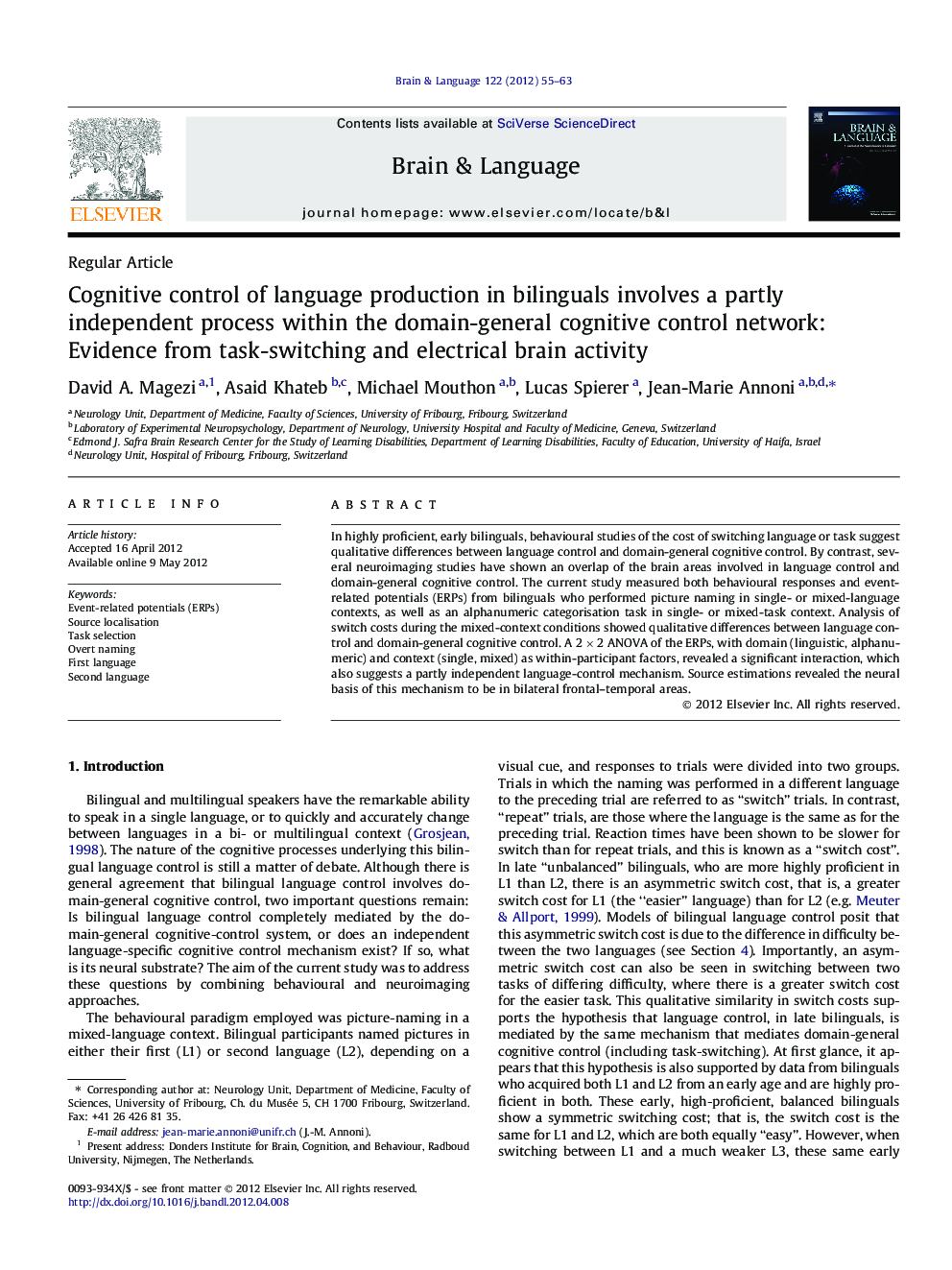| Article ID | Journal | Published Year | Pages | File Type |
|---|---|---|---|---|
| 925461 | Brain and Language | 2012 | 9 Pages |
In highly proficient, early bilinguals, behavioural studies of the cost of switching language or task suggest qualitative differences between language control and domain-general cognitive control. By contrast, several neuroimaging studies have shown an overlap of the brain areas involved in language control and domain-general cognitive control. The current study measured both behavioural responses and event-related potentials (ERPs) from bilinguals who performed picture naming in single- or mixed-language contexts, as well as an alphanumeric categorisation task in single- or mixed-task context. Analysis of switch costs during the mixed-context conditions showed qualitative differences between language control and domain-general cognitive control. A 2 × 2 ANOVA of the ERPs, with domain (linguistic, alphanumeric) and context (single, mixed) as within-participant factors, revealed a significant interaction, which also suggests a partly independent language-control mechanism. Source estimations revealed the neural basis of this mechanism to be in bilateral frontal–temporal areas.
► We examined language control and general cognitive control in bilinguals. ► Behavioural and ERP data suggested a partly independent language-control mechanism. ► Source estimations located this mechanism in executive brain regions.
